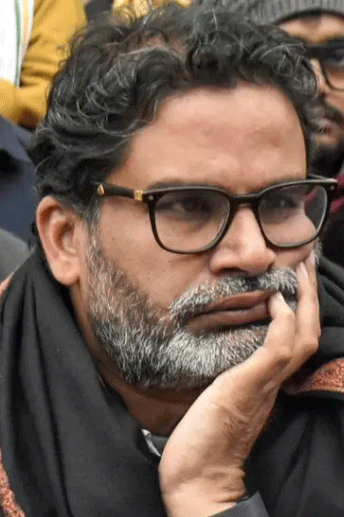Patna: The much-anticipated political debut of election strategist Prashant Kishor’s Jan Suraaj Party (JSP) in the 2025 Bihar Assembly Elections ended in a complete failure, with the party failing to secure a single seat and its candidates polling fewer votes than NOTA in dozens of constituencies.
The results have triggered an intense analysis into why the party, which was built on a lengthy state-wide foot march and a promise of governance over caste politics, failed to convert public interest into electoral success. Analysts and party insiders point to a fatal combination of structural weaknesses and voter polarization.
The most critical factor cited is the party’s profound lack of organisational muscle at the grassroots level. While Shri Kishor’s “padyatra” generated awareness and drew crowds, the party lacked the established, booth-level cadre and local stalwarts that are essential to win in a state like Bihar, where elections are often decided by deep local connections and micro-level social engineering. The party, in essence, was viewed as a top-heavy mission with no durable ground machine.
A second major reason was the disconnect between the party’s candidate selection and Bihar’s political reality. Jan Suraaj primarily fielded professionals, retired bureaucrats, and educated newcomers, aiming to present a “clean” alternative. However, many of these candidates lacked the deep local roots and community familiarity that traditional party candidates rely on, leading to an inability to win voter trust in competitive contests.
Furthermore, Jan Suraaj’s attempt to occupy a neutral “third space” was crushed by severe political polarisation. In the final phases of the election, the contest became a decisive battle between the incumbent National Democratic Alliance and the opposition INDIA bloc, forcing anti-establishment votes to consolidate toward the Mahagathbandhan or swing back to the NDA out of fear of a political vacuum.
Jan Suraaj leaders themselves have cited external factors, including the ruling government’s timely cash transfer scheme of ₹10,000 to women under the Mukhyamantri Mahila Rojgar Yojana, claiming it had a significant impact on swaying a crucial segment of the electorate toward the NDA. The party also acknowledged its failure to convince Muslim voters and claimed that the contest was further polarized following events like the Delhi bomb blast.
In a state where caste and coalition arithmetic remain the foundation of electoral success, Jan Suraaj’s issue-based, non-caste narrative, while appealing to urban youth and professionals, ultimately failed to translate into a resilient voting bloc across the state’s rural heartland.
And Shri Kishor’s own decision not to contest the election also left the party without a clear, definitive leader on the ballot, adding to the perception of a lack of full commitment.
The performance, which saw JSP candidates trailing the Not a Vote option in dozens of seats, makes its path forward challenging but Shri Kishor has yet to officially comment on the future of the movement.


